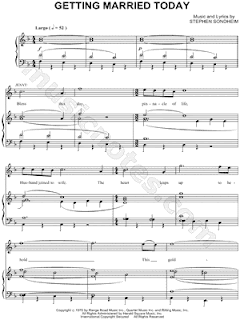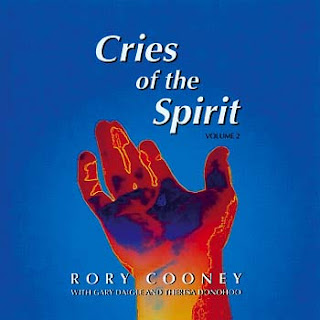 It was one of the strangest days of my life, a confluence of the sun and moon, earth, air, fire, and water at the edge of world. And that was before dinner, when things got really interesting.
It was one of the strangest days of my life, a confluence of the sun and moon, earth, air, fire, and water at the edge of world. And that was before dinner, when things got really interesting.I've talked about this long enough, and so I felt I should finally tell my version of the story of the Big Island Bus Ride of 1992. Over the past several years, much has been written about the nature of memoir, and distinctions made between what actually happened and how an individual remembers it, between, I suppose, truth and experience, or between fact and truth. I don't know about all that in this case, I'm just going to tell you what I remember, completely open to the interpretation of others and correction on matters of fact. I'm certainly not trying to expand on my memory of what happened, nor change any of the details. I'm just saying that I might be wrong about aspects, and if I am, it is unintentional and subject to revision.
 |
| November 1992, in St. Louis. Photo by Gary Bohn. |
1992 was the second time that our little trio was invited to the Big Island Liturgy and Art Conference (BILAC). This year, I had been asked to write the theme song, as I detailed in the "Songstories" post I did a few months ago on the song, "I Am for You." But as it turned out, Gary was unable to attend the conference. We had all just finished a diocesan conference in Springfield, Illinois, on the weekend of All Souls-All Saints, and after Hawaii were headed to Tom Kendzia's parish in Kingston, Rhode Island, for their annual concert. Gary's daughter Paige had been born in October, so he was only able to make the Springfield part of the trip. The trio picture that was part of the packaging of the Vision CD was taken in St. Louis that weekend.
The Big Island conference was, until 2003, held at Malia Pua o Kalani Catholic Parish in the Hawaiian homelands of Keaukaha near Hilo, a beautiful, vibrant community led by Rev. George daCosta and a pastoral team including Joe Camacho. This small community hosted BILAC every year, bringing in liturgists and musicians from the mainland and treating everyone to a relaxing week of Hawaiian hospitality amid the natural beauties of the Big Island. BILAC was a real symbol of the possibility of church for so many of us, a cooperative effort by a small group of committed people, in the context of their parish community, to create an enriching experience for everyone involved, attendees and presenters alike. Presenters stayed in residences with families, some meals were served family-style at the parish center, others in homes. It has been a marvelous model of church.
Marty Haugen and David Haas have been, with Joe Camacho, the musical heart of BILAC and the main connection between the mainland and the community there. They are regular attendees, often with their families, and have developed deep roots over the years among the local community in Keaukaha. Other guests of BILAC over the years reads like a "Who's Who" of the U.S. liturgical and church music scene.
In 1992, in addition to Marty, David, Terry, and me, Bobby Fisher, Rev. (now Msgr.) Ray East, the late Sue Seid-Martin and Fr. Jim Dunning were attending the conference. On the last full day of the conference, it had been a tradition for the group to take the parish bus and do the volcano tour, to visit the caldera of Kilauea for the day. This was a particularly exciting time, because Kilauea was erupting, and the lava flow had made it out to the sea, crossing and closing the seaside road between Hilo and Kona. If we had time, we were told we could go to the site where the lava flow was entering the sea. Along the way, we would stop for an hour or so at a black sand beach on the western side of the island that was constantly being created as the current carried northward the lava that had exploded when it hit the sea water.
The day was everything we had expected it to be. As it drew near sunset, we were indeed able to drive down to the southeastern side of the island, where the lava flow was crossing the highway and running out into the Pacific. Along the edges of the lava flow, actually “lava tubes” with a hardened crust on top, it was possible to see the asphalt of the highway burning. All along the desert plain between the mountain and the ocean, wherever the flow came near a tree, moisture in the roots of the trees would superheat, and the bottoms of the trees would explode, so there were loud pops and booms at intervals. Where the lava flowed into the ocean, there was a deafening roar and towers of steam as the flow exploded into rock and sand. Bushes and trees were on fire everywhere. The highway itself, running almost in a straight line east and west at that point, seemed to divide the world in two between the sea to the south and the volcano to the north. At one end of the highway, the sun was setting into the orange horizon, at the other end, the moon was rising into the deepening indigo sky. It was almost impossible to take in, like coming upon the world being reborn in fire and water.
We finally gathered back onto the bus, taking the long way back to Hilo since we were on the "wrong side" of the lava flow. We stopped in a village in a kind of strip mall at a Chinese restaurant owned by parishioner, and ate a lavish dinner and laughed a lot, sharing our mutual amazement at the spectacle we had been privileged to witness. After dinner, we got back onto the school bus that had been our limo for the day.
The bus moved to the end of the parking lot. From here, we would descend the rest of the way to the highway and then finish the trip to Hilo. Fr. George was the bus driver, and said something to Joe, and Joe and a couple of the other hosts got out of the bus and began inspecting something on the outside while the rest of us continued our conversations. Suddenly, there was an audible "clunk", and the bus started moving.
I'm not a mechanic, so I don't know the exact problem. I want to say that I remember it was the universal joint, but whatever broke in that moment left the bus with no power to the steering or brakes. The men outside, one of whom had been UNDER the bus when it began moving, started chasing us. Some of them had children inside the bus, who began to panic and scream when they saw their dad fall in the street behind us. We were all now in a runaway bus with almost no steering and no brakes, rushing down a mountainside toward a highway where there was a stoplight, and beyond the highway, the sea. The bus accelerated as it descended, Fr. George used the lights and the horn to alert oncoming traffic of our situation, but we were otherwise unable to communicate. This was before cell phones were ubiquitous, and even though one or two people had them, the coverage in this rural area was thin.
As we approached the highway, I could see that the we were not going to have the green light. We would be going through the light on the highway on red, with no way to alert anyone we were coming. Terry was sitting next to me on the bus, clinging to my arm, Ray East was in the seat in front of us. Mothers were holding their terrified children. I remember thinking, "This is how you die. It happens quickly, and you don't expect it at all." Nearing the intersection, collision with the cross traffic seemed inevitable. I told Terry to brace herself, that we were going to be hit. Miraculously, that did not happen; the bus negotiated four lanes of the major highway without a collision. To me, it appeared as though cars had gone through the bus without hitting it. Of course, this is impossible. I have no idea how we managed not to have a major pile-up.
But we still weren't finished. We were still going downhill, with not much between us and the sea. After what seemed like another half-mile or so of coasting, there was a series small rises in the highway, like little hills. Finally, as the bus tried to make its way up the last one, it did not have enough momentum to carry it over. So now the bus began to slide backwards without breaks, down the hill, and up the previous one, and back and forth, until it finally rocked to rest.
At least two people got off the bus and were sick from terror. People were able to contact someone to bring vans, and within an hour or two we were all shuttled back to our respective lodgings. I was staying at a family's house with Ray East and Jim Dunning. For some reason, we had a car at our disposal, and of course my first thought was, Jesus, do I need a drink. But after driving around for a while, and being unable to find an open liquor store, I went home and found something milder to calm me down before trying to sleep.
Now, this is just my recollection of a strange evening of all kinds of miracles. Others will no doubt remember them differently. But, as I recall it, that is the amazing tale of the Big Island Bus Ride of 1992. Jim and Sue have gone to their rest since then. May they bless and guide us who are left here in the Church, especially the lovely people of Malia and the homelands, and Joe and Father George.












